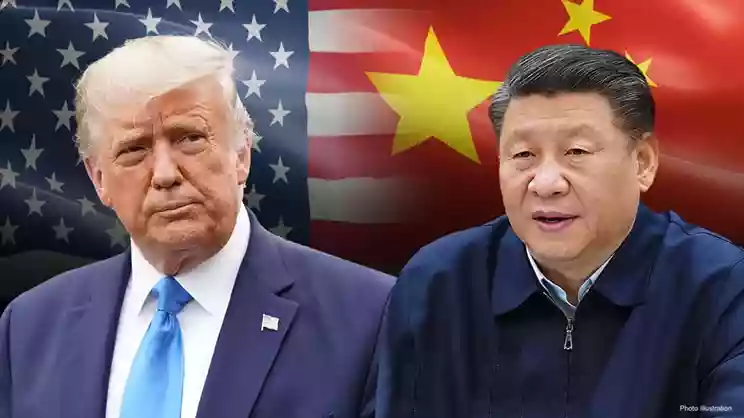Protests erupt outside Kasba Police station as 3 arrested in alleged Kolkata college gang rape
.gif)
.gif)

In a dramatic escalation of the ongoing US-China trade war, President Donald Trump has announced a massive 104% tariff on all Chinese goods, effective from midnight. The announcement was confirmed by the White House, which cited China’s unfair trade practices, including intellectual property theft and market manipulation, as the reasons behind this aggressive move.
This decision marks the highest tariff increase since the trade war between the two countries began, indicating a severe intensification of economic hostilities. The Trump administration maintains that these measures are intended to "level the playing field" and protect American industries from long-standing trade imbalances.
The sweeping tariff will affect a broad spectrum of Chinese imports, ranging from electronics and textiles to essential consumer products. Analysts warn that the move could disrupt global supply chains, raise prices for U.S. consumers, and risk a sharp retaliation from Beijing, which has already hinted at countermeasures.
On Monday, Trump threatened further action if China does not roll back its 34% retaliatory tariffs, stating that any continued resistance would invite “immediate and significantly higher” duties. He also declared a suspension of all ongoing trade talks with Beijing, vowing instead to prioritize deals with other nations.
China responded swiftly. Its Commerce Ministry confirmed a matching 34% tariff on American goods from April 10. In a more strategic move, China’s Finance Ministry announced new export restrictions on rare-earth minerals, including samarium and gadolinium, which are critical to electronics and defense manufacturing.
Global financial markets have reacted with alarm. The S&P 500 has fallen 20% since its February high, while the Dow Jones Industrial Average has dropped over 17%. The Hang Seng Tech Index in China has plunged 27% in a month, and the yuan has sunk to its lowest level since January.
Meanwhile, the Trump administration is expanding its aggressive trade stance beyond China. On April 2, the U.S. imposed a 26% tariff on Indian imports, calling it a “reciprocal” move under Trump’s broader trade policy. Economists fear these decisions may push the global economy toward a slowdown, with industries struggling to absorb the rising costs and uncertainty.